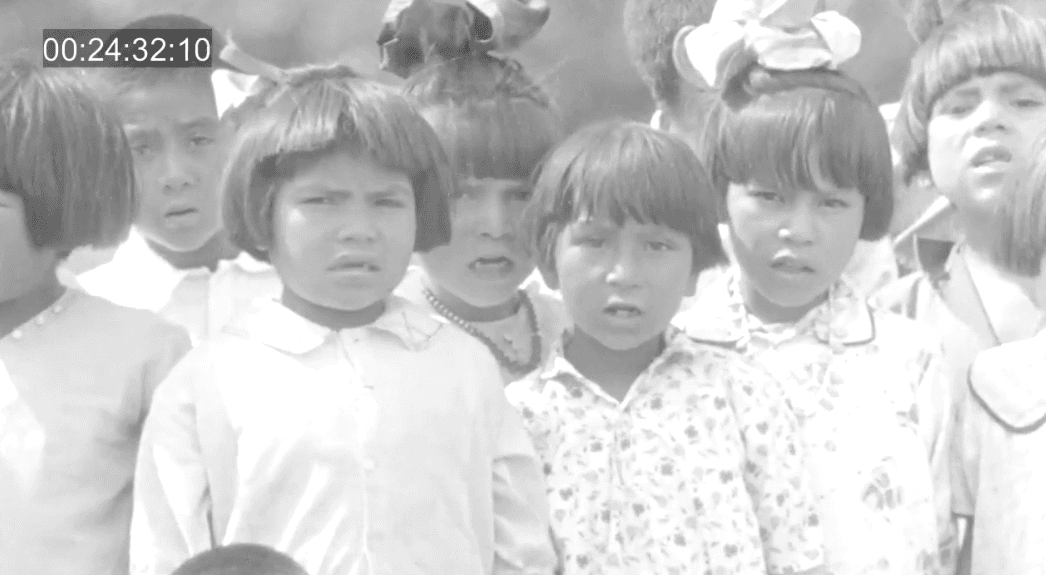Native children sing "Ten Little Indians" at Albuquerque Indian School.
Cultural preservation is self-preservation for Native communities. An upcoming film from the Upstander Project, "Dawnland," explains just that.
The documentary, now in post-production, follows the journeys of those involved in a truth and reconciliation process in Maine involving the Wabanaki people. The documentary examines the history and the implications of the removal of Native children from their homes in the US.
From boarding schools in the 1800s to foster care today, Native children have repeatedly been separated from their families. In Maine, the Wabanaki-State Child Welfare Truth and Reconciliation Commission formed in 2012 to trace the abuses experienced by Native children since the Indian Child Welfare Act was enacted in 1978.
As early as 1975, a US Senate report found that Native children were 19 times more likely to be removed by child welfare workers than non-Native children. Today, Native children are still twice as likely to be taken from their homes and placed in foster care. Research has suggested this practice can lead to even greater isolation and erasure of indigenous culture.
oembed://https%3A//vimeo.com/161536192
The stories of Native children in foster care are peppered with horrific and unusual punishments, including not receiving food and being subject to physical harm as well as emotional and sexual abuse.
To tell these stories today, "Dawnland" has tapped advisers and consultants to help ensure the representation of the Wabanaki is accurate. Chris Newell is one of the advisers — he ensures the film is “culturally competent to the collective cultures of the Wabanaki territory.”
Newell — born and raised in Motahkmikuhk, an Indian township in Maine — considers the story of Dawnland not his own, but rather the story of many of the people he grew up with.
Hear more about cultural preservation in "Dawnland," by listening to the audio above.
Future Folk shares the stories of communities through the music that they make. It is a co-production of PRI’s The World and the Smithsonian Folklife Festival.
